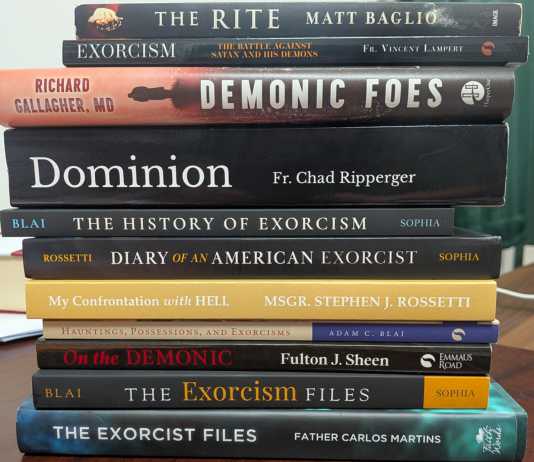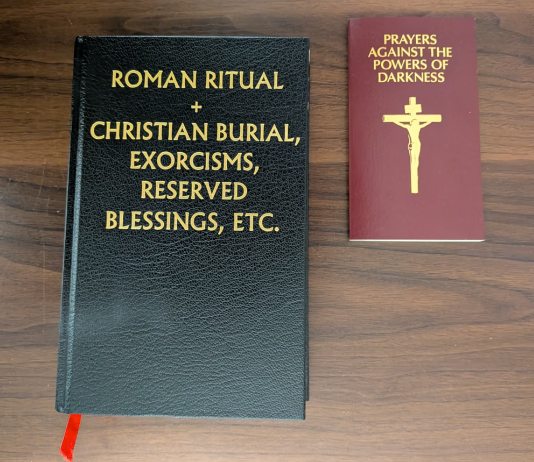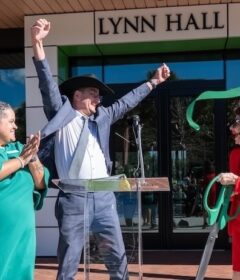Professor of Religious Studies Receives Grant to Aid with Book Research


Assistant Professor of Religious Studies William Chavez, PhD, was awarded A First Book Grant for Scholars of Color from the Louisville Institute. Funded by the Religion Division of the Lilly Endowment, Louisville Institute awards grants and fellowships to those who lead and study North American religious institutions, practices and movements, advancing scholarship to strengthen church, academy and wider society.
The topic of Chavez’s book is Exorcism and Satanism in Folklore and Media — “What role or duty does the Catholic Church serve to its parishioners in this latest stage of information dissemination and misinformation?”

“This book is a continuation of my PhD dissertation, which I filed in 2022,” said Chavez, who has been studying exorcism since 2012. “My original interviews were conducted from 2018 to 2022 across the United States, and with this grant I’ll return to this research to conduct new interviews and write new book chapters during the Fall 2026 semester.”
Chavez will go on leave for a single semester next year but said he will miss his students. Since arriving at Stetson in 2023, he has taught multiple courses, including Christianity in the Americas, Religious Approaches to Death, History of Satan, The Gospels, Strange Tales of Latin(X) America and the Caribbean, and Religion and Video Games.
In a book description that appears on the Louisville Institute website, Chavez wrote, “My book tells the untold story of how folk and media-fueled fears of global Satanic conspiracy fuel the revived institutional support of the Catholic Church’s office of exorcist — that is, multiple training programs, papal mandates, revised ritual manuals and increased appointments of priest-exorcists in dioceses across the globe. I demonstrate how modern Catholic exorcists, post-1998, serve parishioners as trained anti-occultists and not simply ritual specialists. They are trained to reduce the number of exorcisms performed, approaching possession cases as exceedingly rare, and, instead, recommend that most supplicants receive psychiatric treatment.”

While most of us will never see an actual exorcism, occult practitioners or a satanic ritual, “your fear of it is entirely dependent on media representation on podcasts, Tik-Tok, Instagram, the news media and church education,” Chavez said. “That information is filtered through the media.”
Chavez admitted that “many people assume I must have witnessed something that drew my attention to exorcism, but that is not true. I wanted to study exorcism because it was something that we did not talk about in my early education.”
Chavez said the primary threat isn’t a demon who will possess you but rather human-orchestrated evil, which poses a larger threat. That’s why the numbers of priest-exorcists (who also are trained as anti-occult specialists) has increased. Though exact numbers are never released by the Catholic Church, Chavez estimates there are hundreds at work today — up from only a dozen or two before 1998.
The First Book Grant for Scholars of Color (FBG) supports academic sabbatical leave for research projects about Christian faith and life, the practice of ministry, religious trends and movements, Christian and other faith-based institutions, and religion and social issues. The intention of the First Book Grant is to help early-career scholars of color complete research and writing for publication of their first book (or a second book, if necessary for tenure).
Chavez hopes that receiving the grant will lead other professors to seek and apply for similar opportunities.
– Renee Garrison



